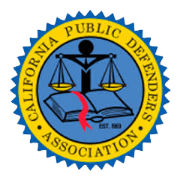
Table of Contents:
- Unpacking Recent Constitutional Law Developments: A Comprehensive Guide
- A Year of Unprecedented Decisions in Constitutional Law Developments
- Staying Informed: Key Resources for Tracking Constitutional Law Developments
- FAQs about Constitutional Law Developments
- Conclusion
Unpacking Recent Constitutional Law Developments: A Comprehensive Guide
Constitutional law is dynamic, constantly changing as new cases emerge and societal values evolve. Grasping these developments demands a solid understanding of historical context, current events, and legal precedent. Whether you are a legal professional, a student, or simply a concerned citizen, staying informed about the latest shifts in this critical area is paramount.
This year has brought a surge of developments impacting various facets of constitutional law. From high-profile Supreme Court cases to significant state-level rulings, the legal landscape has undergone a substantial transformation. Let’s explore these changes and their potential ramifications for our rights and freedoms.
A Year of Unprecedented Decisions in Constitutional Law Developments
The Supreme Court, often seen as the ultimate interpreter of the Constitution, has played a pivotal role in shaping constitutional law this year. Several landmark rulings have addressed contentious topics such as presidential immunity, gun control, and the right to abortion.
Navigating Presidential Immunity
One notable case examined the boundaries of presidential immunity in federal proceedings. As legal proceedings continue to surround former President Trump, the Court grappled with the degree to which a sitting or former president is shielded from legal scrutiny. This decision has far-reaching consequences, potentially reshaping the balance of power and the scope of accountability.
The Right to Bear Arms: A Contentious Debate
Further fueling ongoing debates about gun control, another case analyzed the Second Amendment’s guarantee of the right to bear arms. This contentious topic continues to polarize public opinion, with fervent arguments from both sides. The Supreme Court’s ruling offers a significant interpretation of this right, potentially influencing gun laws at both the state and federal levels.
Global Shifts in Reproductive Rights
On the global stage, constitutional law witnessed significant developments regarding abortion. France emerged as a leader, becoming the first nation to enshrine the right to an abortion in its constitution. This move reflects evolving societal views on reproductive rights and sparks discussions about comparable measures in other countries.
In stark contrast, the United States Supreme Court overturned Roe v. Wade, igniting widespread protests and a wave of legislative actions nationwide. This striking difference in approach highlights the diverse range of global opinions on reproductive rights.
Navigating Constitutional Reform
Beyond courtrooms, other notable constitutional law developments unfolded globally, underscoring the continuous evolution of legal frameworks.
Chile’s Constitutional Journey
Chile embarked on a historic journey toward constitutional reform, seeking to replace a constitution established during Pinochet’s regime. However, their efforts to ratify a new constitution through a referendum have encountered obstacles. These challenges reflect the inherent complexities of revising a nation’s foundational legal document.
Staying Informed: Key Resources for Tracking Constitutional Law Developments
Keeping up with these shifts can feel overwhelming. Fortunately, numerous online platforms provide accessible ways to stay current.
- Law Library of Congress: This extensive platform (https://www.loc.gov/law/foreign-news/?home) offers comprehensive coverage of legal news worldwide. It is a valuable tool for remaining up-to-date on global legal developments.
- Social Science Research Network: For in-depth scholarly work, SSRN is a valuable open-access hub for social science research. Researchers and academics can find a wealth of information on this platform.
- The New York Times: While not solely a legal resource, the NYT boasts a valuable historical archive with articles dating back to 1851 (https://www.nytimes.com/). It provides crucial historical context for today’s legal landscape.
- Law Blogs and Journals: Specialized blogs, including SCOTUSBlog (https://www.scotusblog.com/), I-CONnect, Constitutional Law Prof Blog, and Jurist, offer insightful analysis and commentary on legal developments from academics and practitioners.
Additional Resources: Georgetown Law Library’s Constitutional Law and History Research Guide
Georgetown Law Library (http://www.law.georgetown.edu/library) offers an invaluable online constitutional law guide, providing access to many materials, from historical documents and Supreme Court cases to expert analysis. These resources are essential for understanding the intricacies of constitutional law developments.
| Resource Category | Description |
|---|---|
| Primary Law | Georgetown’s guide comprehensively covers US Constitution texts, landmark cases, and legislative updates. This enables researchers to examine the nuances of legal precedent thoroughly. |
| Historical Documents | For those delving into the history of constitutional law, this guide points to essential documents. The Federalist Papers, for example, offer a glimpse into the Founding Fathers’ intentions. |
| State Constitutional Law | Grasping the interplay between federal and state constitutional law is crucial. This guide directs researchers to state-specific resources, helping them examine how states interpret and apply constitutional principles. |
The digital age allows anyone to follow these pivotal constitutional law developments, whether through mainstream news or academic journals. Staying informed empowers us all to be active participants in shaping our future. As new cases arise, continuously updating your understanding with accurate and insightful resources is key.
FAQs about Constitutional Law Developments
What is an example of constitutional law?
The First Amendment of the US Constitution, which guarantees freedom of speech, religion, press, assembly, and petition, is an example of constitutional law. These fundamental rights are cornerstones of American democracy.
What does the Constitution say about new laws?
Article I of the Constitution outlines the process by which Congress enacts new federal laws. It’s important to remember that new laws cannot infringe upon the rights or powers safeguarded by the Constitution. The Constitution serves as a critical check on legislative power.
Conclusion
Navigating the intricate world of constitutional law developments can feel like a daunting task. However, it is essential to stay informed about these developments and understand their potential impact. By utilizing available resources and engaging in informed discussions, we can all contribute to a society that upholds and respects the principles enshrined in our Constitution.





